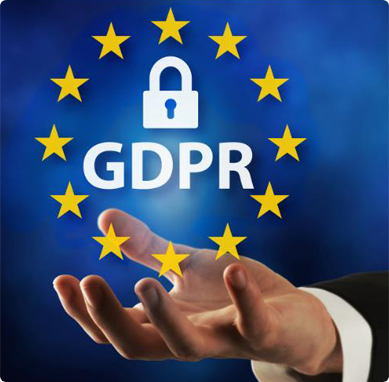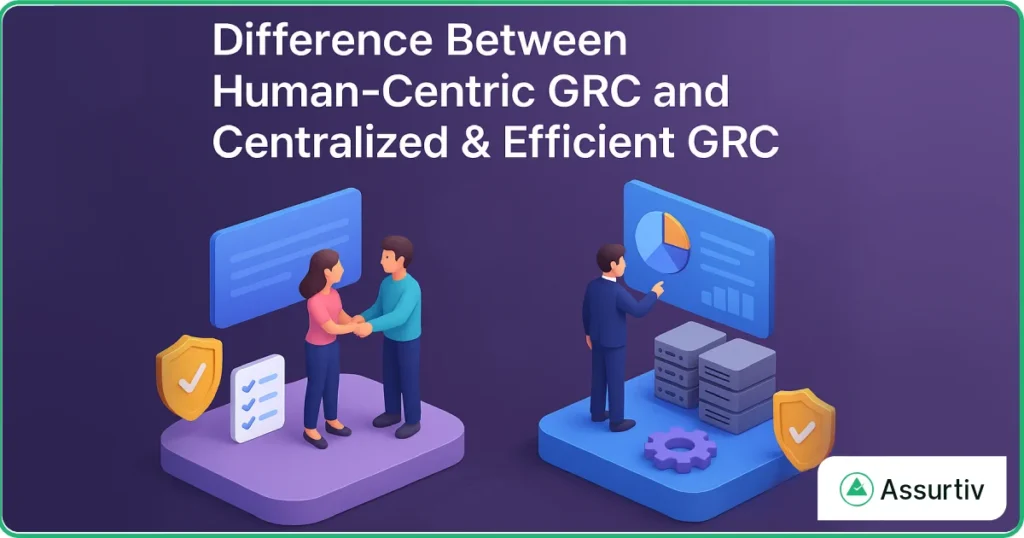GDPR: A Comprehensive Guide to Data Protection Standards and Policies
By assurtiv | Last Updated: 27 Jan 2025
 In today’s data-driven world, protecting personal data has become a crucial priority for businesses worldwide. The General Data Protection Regulation (GDPR), enforced by the European Union (EU), is one of the most significant and stringent privacy laws to ensure that organizations handle personal data responsibly. This blog will guide you through the essential elements of GDPR, focusing on its standards, policies, and controls specifically designed for data protection.
In today’s data-driven world, protecting personal data has become a crucial priority for businesses worldwide. The General Data Protection Regulation (GDPR), enforced by the European Union (EU), is one of the most significant and stringent privacy laws to ensure that organizations handle personal data responsibly. This blog will guide you through the essential elements of GDPR, focusing on its standards, policies, and controls specifically designed for data protection.
What is GDPR?
The General Data Protection Regulation (GDPR) is a regulation enacted by the European Union (EU) in 2018 to strengthen and unify data protection for all individuals within the EU. It sets out rules on how organizations should handle personal data, giving individuals greater control over their data and ensuring transparency in data processing.
Key Principles of GDPR
GDPR is built on several core principles that form the foundation of its data protection policies:
- Lawfulness, Fairness, and Transparency: Data should be processed lawfully, fairly, and transparently.
- Purpose Limitation: Personal data must only be collected for specified, legitimate purposes.
- Data Minimization: Only the data necessary for processing should be collected and retained.
- Accuracy: Data should be accurate and kept up to date.
- Storage Limitation: Data should be kept only for as long as necessary for its intended purpose.
- Integrity and Confidentiality: Data should be processed securely, ensuring confidentiality and integrity.
- Accountability: Organizations are accountable for complying with these principles.
Data Protection Policies under GDPR
Organizations must implement robust policies to protect personal data. These policies typically include:
- Data Handling Procedures: Clearly define how personal data should be collected, stored, and processed.
- Data Subject Rights: Ensure individuals can access, rectify, or erase their data and request data portability.
- Consent Management: Obtain explicit consent from individuals before processing their personal data.
- Data Breach Notification: If a data breach occurs, organizations must inform both the relevant authorities and affected individuals within 72 hours.
GDPR Controls for Data Protection
To comply with GDPR, organizations must implement various technical and organizational controls to ensure data security. These include:
- Data Encryption: Encrypt sensitive personal data to ensure it is protected during storage and transmission.
- Access Controls: Restrict access to personal data based on roles and responsibilities to ensure that only authorized personnel can view or modify data.
- Data Anonymization: Anonymize personal data where possible to minimize the risk in case of data breaches.
- Regular Audits and Assessments: Conduct regular audits and Data Protection Impact Assessments (DPIAs) to evaluate data protection measures and identify potential vulnerabilities.
- Employee Training: Train employees on GDPR requirements and data protection best practices to ensure a culture of privacy within the organization.
- Data Retention Policy: Implement a clear data retention policy that outlines how long personal data will be kept and when it will be deleted.
Key Rights of Individuals under GDPR
GDPR also grants several rights to individuals regarding their personal data, which include:
- Right to Access: Individuals can request access to their personal data held by organizations.
- Right to Rectification: Individuals can request corrections to inaccurate data.
- Right to Erasure: Also known as the “right to be forgotten,” individuals can request the deletion of their personal data.
- Right to Restriction of Processing: Individuals can request to restrict the processing of their data under specific conditions.
- Right to Data Portability: Individuals can request their data in a structured, commonly used, and machine-readable format.
- Right to Object: Individuals can object to the processing of their personal data, particularly for direct marketing purposes.
GDPR and Data Protection Impact Assessments (DPIAs)
A crucial element of GDPR is the Data Protection Impact Assessment (DPIA), which helps organizations identify and mitigate data privacy risks before starting any new project that may affect personal data. DPIAs should be conducted for processes involving:
- Large-scale processing of sensitive data.
- Systematic monitoring of individuals.
- High-risk processing activities like profiling.
Penalties for Non-Compliance
Failure to comply with GDPR can result in hefty fines. The penalties are categorized as follows:
- Up to €10 million or 2% of global turnover, whichever is higher, for less severe violations (e.g., failing to implement appropriate technical and organizational measures).
- Up to €20 million or 4% of global turnover, whichever is higher, for severe violations (e.g., breaching core principles of data processing, failing to obtain consent, or not notifying authorities about a breach).
Conclusion
GDPR is a comprehensive data protection regulation that ensures individuals’ privacy rights are respected, while also holding organizations accountable for the data they process. By implementing the right policies, controls, and technologies, businesses can protect personal data and avoid significant penalties.
ASSURTIV, an integrated GRC application powered by AI, can be a one-stop solution for managing your organization’s data privacy and compliance needs. With its AI-driven features, ASSURTIV helps you streamline risk management, automate data protection tasks, and ensure compliance.




